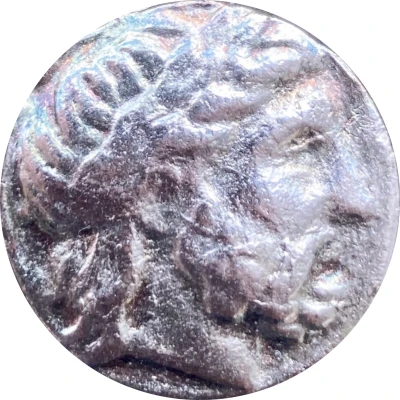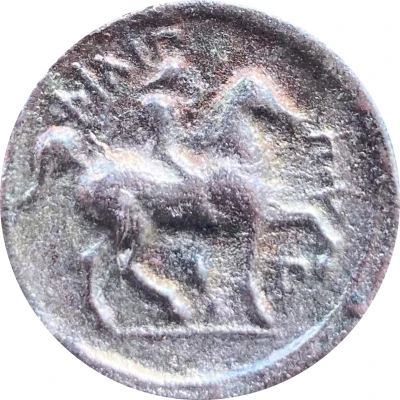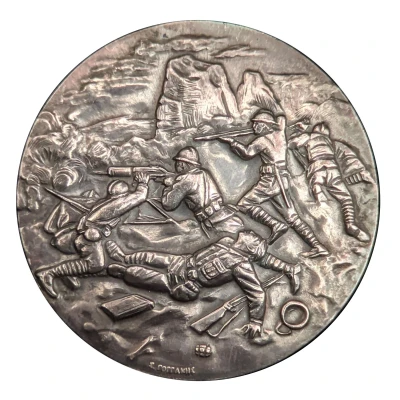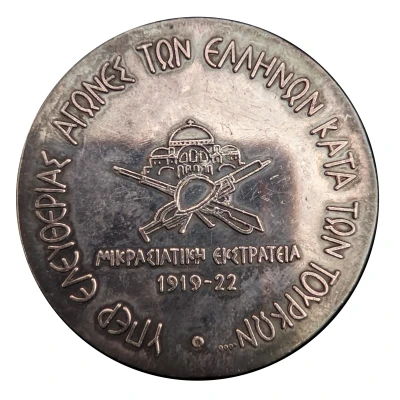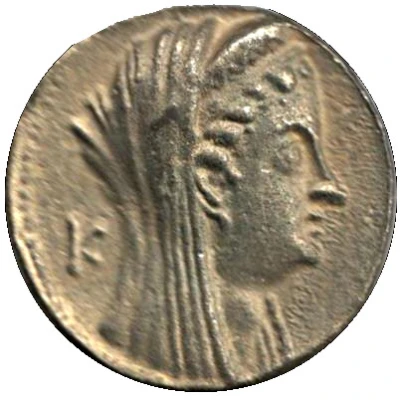
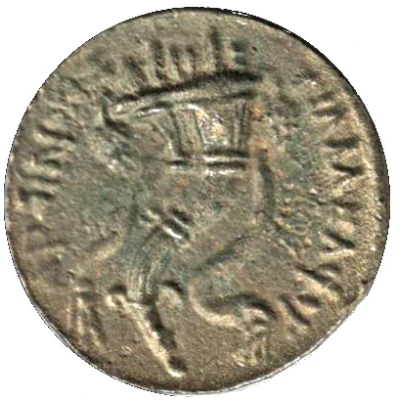

© Philip Coetzee
Replica - Greek Cultural Journey (Oktadrachma Egypt 246-221 BC) ND
| - | 7.85 g | 25.6 mm |
| Location | Greece |
|---|---|
| Type | Medals › Coin replicas |
| Value | Oktadrachma (8) |
| Weight | 7.85 g |
| Diameter | 25.6 mm |
| Thickness | 3.35 mm |
| Shape | Round |
| Orientation | Medal alignment ↑↑ |
| Demonetized | Yes |
| Updated | 2024-11-12 |
| Numista | N#167423 |
|---|---|
| Rarity index | 97% |
Reverse
Horn pointing up
Edge
Plain
Comment
Issued around 246-221 BCCoins of the Greek Cultural Journey
As old as the technology to work metal, so old is the trade with metals. From the Queen of Small-Asia, bean sized gold pebbles, from around 7 years BC, with the royal stamp to confirm their weight and worth, are known. Via the Greek trade routes over the cities such as Milet and Ephesus, the practice became known very quickly and was copied by Aegina, Kortinth and Athens.
In the gold rich Lydien, Elektron, a natural occuring alloy out of silver and gold, were used for coins. However the rich King Krösus was the first to issue gold and silver coins. While in the Greek Motherland mostly silver were transformed into coins.
The Talent as base unit (about 26 kg) was divided into 60 Minen of about 435g each. 1 Mine consists of 100 Drachma (4,3g) and subdivided into 5 Oblen. The value of one silver Drachma was equivalent to a "hand full" (= Drachma in Greek) of copper pieces, as was customry in trade. The most common coins were the two Drachma pieces (= Starter with 8,7g) and the four Drachma pieces (= Tetradrachmon with 17,4g).
A worker around 400 BC earned one Drachma a day, of which he needed about a third for daily needs. One jug of wine cost 1 Obol, an armour 30 Drachma, while you had to pay as much as 300 Drachma for a slave.
Between the hands of the art talented Greeks, coin designs developed to significant small artworks. Especially beautiful coins were issue by the rich Greek trade companies on Sicily. The coin culture of the West was influenced by the Coin Cutter from Greece.
ARA
